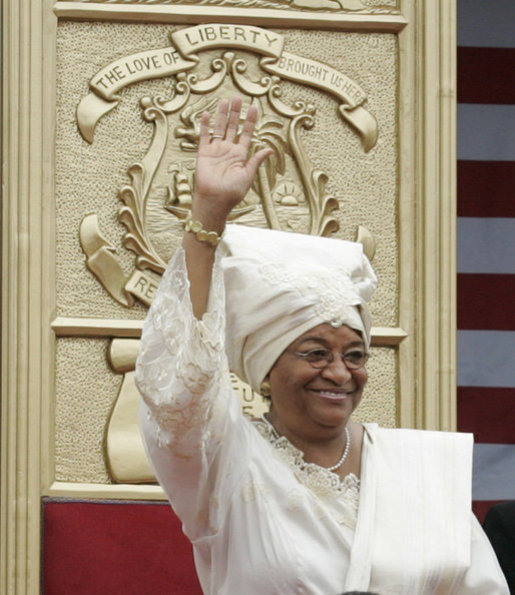
The Truth and Reconciliation Commission (TRC) of Liberia in its final report this week recommended that President Ellen Johnson Sirleaf among others should be barred from holding public office for 30 years.
The recommendation also extended to all those associated with former warring factions, their leaders, political decision makers, financiers, organizers, commanders, foot soldiers. President Sirleaf has already spoken on the subject saying she gave support to the Charles Taylor group but “only intended for humanitarian purposes.”
The TRC doesn’t outright say Sirleaf is guilty of partly fuelling the 14 year old conflict that claimed thousands of lives in the West African nation but their recommendation has got many thinking about the implications. President Sirleaf has been one of the African women that inspire me not because she was the first female head of state but because of her ambition displayed in a career in the finance industry built over decades. In the elections I was excited by George Weah because of his football career but a good look at Sirleaf made me believe she was the right person for the job of heading a country emerging out of a war.
I never knew I would have a chance to talk to Sirleaf. But that chance came in February 2007 in Kigali Rwanda where I had gone to cover a huge African women conference. I was working for NTV at the time and it was a one man crew. I had to secure an appointment for an interview with the president at her suite at Kigali Serena Hotel.
After waiting for long hours (because the SABCs CNNs of this world had to go in first) I got into her room. I was told by her press secretary that I had exactly 15 minutes to setup the equipment and do the interview. First she was amazed at how a lone girl from Uganda could make it in these minutes and she said something to that effect before the interview began.
Why am I bringing this up? It’s because I asked how Sirleaf could have supported Charles Taylor during this interview. And her answer was that she thought of him differently at the time. She didn’t think that Taylor wanted power for himself just like many other leaders on the continent. She agreed it was a misjudgment on her part but she insisted she had started a new page of rebuilding her nation. Sirleaf said that as a woman and mother she understood well that women suffered the brunt of war through rapes and that such wounds can mostly deeply be understood by a woman. She said she was determined to see justice served.
To me she cut across as an honourable politician and I was in no doubt she was the iron lady I had long read about. Her experience on international stage gave her a different added understanding of conflict and governance in Africa as she put forward her views of leaders who cling to power during the interview. With this judgment from the TRC I am left thinking, what options does the honourable iron lady have? And if she’s to step down would this be good for Liberia? Before I even think of her stepping down, what truth is in her defense when she says her support was for humanitarian use? Charles Taylor is still being held at The Hague, on trial by the Special Court for Sierra Leone for war crimes and crimes against humanity committed during the conflict in Sierra Leone. So this means we won’t hear from Taylor whom Sirleaf dealt with but this shouldn’t water down the case for or against Sirleaf. There should be extensive revelations whether Sirleaf was aware of Taylor’s mischief and whether Taylor was the only person through whom such supplies could have passed to reached the people.
I still believe that Sirleaf should remain president unless there’s insurmountable evidence that her support for Taylor was aimed at elevating herself politically. After her work that has improved lives in Liberia, I think Sirleaf should be given a chance to correct her wrongs if she hasn’t done that already. At the end of our interview she was warm and she asked how I find my work and the challenges. After my brief answer she said: “We need women like you in the media in Liberia.” This statement showed me this is a president who thinks of her country in every sense. If the recommendation of the TRC is to be adopted, they will put an abrupt and ugly end to the career of a great woman. And such great women in African who can traverse male dominated political playgrounds in a dignified way to go on to become great leaders are hard to come by. This is where the question of justice or moving on comes in play. With appreciation that one can hardly move on without justice, I still believe banning Sirleaf will be Liberia’s loss.
